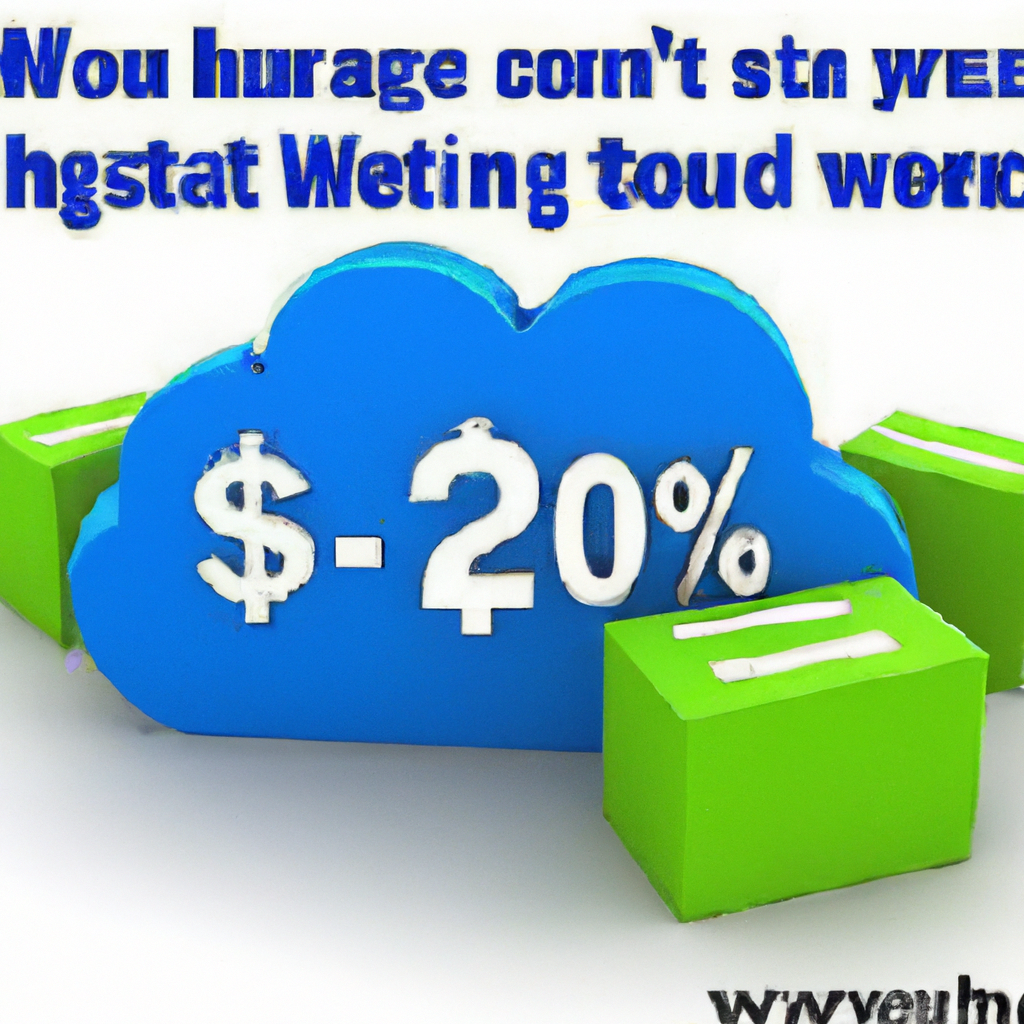Are you curious about the cost of web hosting? Look no further! In this article, we will explore the various pricing options for web hosting services. Whether you’re a small business owner or an aspiring blogger, deciding on the right web hosting plan can be a daunting task. We will break down the costs and features of different hosting packages, allowing you to make an informed decision that suits your needs and budget. Stick around to discover how much web hosting really costs!
How to Make Money with YouTube
Create an empire of automated video websites for multiple streams of income
Factors That Affect Web Hosting Cost
When it comes to web hosting, there are several factors that can impact the cost. Understanding these factors can help you choose the right hosting plan for your needs and budget. Here are the key factors that affect web hosting cost:
Type of hosting
The type of hosting you choose has a significant impact on the cost. There are various types of hosting available, each with its own advantages and disadvantages. The most common types include shared hosting, virtual private server (VPS) hosting, dedicated server hosting, cloud hosting, managed WordPress hosting, e-commerce hosting, and free hosting. The cost of each type of hosting varies based on the resources and features provided.
Features and resources
The features and resources provided by a hosting provider can also affect the cost. Different hosting plans come with varying amounts of storage, bandwidth, CPU power, and other resources. Additionally, certain features like unlimited email accounts, website builder tools, and SSL certificates may come at an extra cost. It’s important to consider your website’s requirements and choose a plan that offers the necessary features within your budget.
Server location
The location of the server where your website is hosted can impact the cost. Some hosting providers offer servers in multiple countries or regions, allowing you to choose a server location that is closer to your target audience. However, servers in certain locations may be more expensive to maintain, thereby increasing the overall cost of hosting.
Provider reputation
Web hosting providers with a reputable brand name often come with a higher price tag. These providers usually offer better customer support, more reliable servers, and stronger security measures. While it may be tempting to opt for a cheaper, lesser-known provider, it’s important to consider the quality of service and support you will receive. Investing in a reputable provider can help you avoid potential issues and downtime in the long run.
Contract length
The length of your hosting contract can also affect the cost. Most hosting providers offer discounts for longer-term contracts, such as annual or multi-year packages. While committing to a longer contract upfront may require a larger initial investment, it can help you save money in the long term. However, if you’re unsure about the quality of service or have plans to switch providers in the near future, opting for a shorter-term contract may be more suitable.
Now that we’ve covered the key factors that impact web hosting cost, let’s dive into the details of different types of hosting and their respective price ranges.
Shared Hosting
Price Range
Shared hosting is the most affordable option for hosting your website. Prices typically range from $2 to $10 per month, depending on the hosting provider and the features included in the plan.
Advantages
Shared hosting is ideal for individuals or small businesses with limited budgets. It allows multiple websites to share resources on a single server, making it a cost-effective option. Shared hosting plans often come with easy-to-use website builders, email accounts, and 24/7 technical support. They are also suitable for websites with moderate traffic levels.
Disadvantages
The main disadvantage of shared hosting is the limited resources and potential performance issues. Since multiple websites share the same server resources, if a website experiences a sudden surge in traffic or utilizes too many resources, it can affect the performance of other websites hosted on the same server. Additionally, you may have limited control over server settings and customization options.

Virtual Private Server (VPS) Hosting
Price Range
VPS hosting is a step up from shared hosting in terms of performance and control. Prices typically range from $20 to $100 per month, depending on the specifications of the VPS server and the hosting provider.
Advantages
VPS hosting offers dedicated resources and enhanced control over server settings. It provides better performance and scalability compared to shared hosting. With VPS hosting, your website is hosted on a virtual server that simulates the environment of a dedicated server, giving you more control and flexibility.
Disadvantages
The main disadvantage of VPS hosting is the higher cost compared to shared hosting. It may also require more technical knowledge to set up and manage compared to shared hosting. While VPS hosting offers better performance than shared hosting, it may still be less powerful than a dedicated server, especially for websites with high traffic or resource-intensive applications.
Dedicated Server Hosting
Price Range
Dedicated server hosting is the most powerful and customizable hosting option. Prices typically range from $80 to $500 or more per month, depending on the specifications of the dedicated server and the hosting provider.
Advantages
Dedicated server hosting provides exclusive access to all server resources, offering maximum performance and customization options. It is ideal for high-traffic websites, resource-intensive applications, and businesses requiring strict security and compliance measures. Dedicated server hosting also offers complete control over server settings and configurations.
Disadvantages
The main disadvantage of dedicated server hosting is the high cost, making it less suitable for individuals and small businesses with limited budgets. Dedicated servers also require advanced technical knowledge for setup, configuration, and maintenance. Additionally, you are responsible for managing all aspects of server security, software updates, and backups.

Cloud Hosting
Price Range
Cloud hosting is a flexible and scalable hosting option that charges based on usage. Prices typically range from $5 to $100 or more per month, depending on the resources and services utilized.
Advantages
Cloud hosting offers scalability and resource flexibility, allowing you to easily scale your website’s resources up or down based on demand. It provides high availability and reliability by distributing resources across multiple servers. Cloud hosting also offers pay-as-you-go pricing, where you only pay for the resources you consume.
Disadvantages
The main disadvantage of cloud hosting is the potential for unexpected cost increases if resource usage exceeds the estimated amount. While cloud hosting can be cost-effective for websites with fluctuating traffic, it may be more expensive than other hosting options for websites with consistent high traffic levels. Additionally, it may require more technical knowledge to set up and manage compared to shared hosting.
Managed WordPress Hosting
Price Range
Managed WordPress hosting is specifically optimized for WordPress websites. Prices typically range from $10 to $50 or more per month, depending on the hosting provider and the level of managed services included.
Advantages
Managed WordPress hosting takes care of all the technical aspects of running a WordPress website, including automatic updates, backups, and security measures. It offers faster loading times, improved performance, and enhanced security compared to shared hosting. Managed WordPress hosting providers often provide specialized support for WordPress-related issues.
Disadvantages
The main disadvantage of managed WordPress hosting is the higher cost compared to shared hosting. It may also have limitations on customizations and plugins compared to other hosting options. If you have a non-WordPress website or require more advanced customization options, other types of hosting may be more suitable.
E-commerce Hosting
Price Range
E-commerce hosting is specifically tailored for online stores and includes features like shopping carts and payment gateways. Prices typically range from $10 to $50 or more per month, depending on the hosting provider and the e-commerce platform included.
Advantages
E-commerce hosting offers specialized features and tools for managing online stores. It provides secure payment gateways, SSL certificates for secure transactions, and integrated shopping cart systems. E-commerce hosting also often includes specialized support for configuring and managing online stores.
Disadvantages
The main disadvantage of e-commerce hosting is the higher cost compared to shared hosting. It may also have limitations on customization and scalability compared to other types of hosting. If you have a small online store or limited budget, shared hosting or managed WordPress hosting with e-commerce plugins may be more suitable.
Free Hosting
Price Range
Free hosting is provided by some hosting providers or platforms at no cost. However, it often comes with limitations and restrictions.
Advantages
The main advantage of free hosting is the lack of cost, making it appealing for individuals or small projects with limited budgets. It can be a good option for personal blogs or experimental websites. Free hosting often includes basic features like storage space and bandwidth.
Disadvantages
Free hosting typically comes with several limitations and disadvantages. These include limited storage space and bandwidth, intrusive advertisements displayed on your website, lack of customer support, and potential performance issues. Free hosting also often lacks essential features like SSL certificates, email hosting, and website backups. It may not be suitable for professional websites or businesses with higher traffic and security requirements.
Additional Costs for Web Hosting
In addition to the hosting plan cost, there are several additional costs to consider when budgeting for web hosting:
Domain registration
Registering a domain name for your website often incurs separate costs. The price of domain registration varies depending on the extension (.com, .net, .org, etc.) and the domain registrar you choose. Some hosting providers may offer free domain registration for the first year as part of a hosting package.
SSL certificates
SSL certificates are essential for securing your website and encrypting sensitive data. While some hosting providers include basic SSL certificates for free, more advanced certificates may come at an additional cost. Prices for SSL certificates can range from $10 to $200 or more per year.
Website builder
Website builder tools provide an easy way to create and design your website without coding knowledge. Some hosting providers include website builders in their hosting plans, while others offer them as separate services. Depending on the website builder you choose, prices can range from free to $30 or more per month.
Email hosting
If you want professional email addresses with your domain name (e.g., yourname@yourwebsite.com), you may need to purchase email hosting services. Email hosting prices vary depending on the provider and the number of email accounts needed. Prices typically range from $1 to $10 or more per month per email account.
Website migration
If you already have an existing website hosted elsewhere and want to move it to a new hosting provider, you may incur website migration costs. Some hosting providers offer free website migration services, while others may charge a fee. The price for website migration can range from free to $100 or more, depending on the complexity of the migration.
Technical support
While most hosting providers offer basic customer support, some may charge additional fees for advanced technical support or specialized services. This can include tasks like server optimization, security audits, and website performance enhancements. The costs for technical support services can vary depending on the provider and the specific services required.
Now that you have a better understanding of the factors that affect web hosting costs and the additional costs to consider, let’s explore some tips to help you reduce your web hosting expenses.
Tips to Reduce Web Hosting Costs
Choose the right type of hosting
Carefully assess your website’s requirements and choose the type of hosting that meets your needs without unnecessary expenditure. If you have a small personal blog, shared hosting may be sufficient. However, if you have a resource-intensive application or expect high traffic, investing in dedicated server hosting or cloud hosting may be more cost-effective in the long run.
Compare pricing and features
Do thorough research and compare the pricing and features of different hosting providers. Consider the resources and features included in each plan, as well as the overall reputation and reliability of the provider. Look for hosting providers that offer competitive pricing and transparent billing practices.
Pay attention to renewal prices
It’s important to pay attention to renewal prices when signing up for a hosting plan. Many hosting providers offer discounted prices for the first term but increase the cost upon renewal. Make sure to read the terms and conditions to understand the renewal pricing and decide if it fits within your long-term budget.
Look for discounts and promotions
Hosting providers often run discounts and promotions, especially during holiday seasons or special events. Keep an eye out for these offers and take advantage of them to save on your hosting costs. However, make sure to read the fine print to ensure that the discounted price remains valid for the duration you require.
Optimize your website’s performance
Optimizing your website’s performance can help reduce the server resources required, potentially lowering your hosting costs. Implement performance optimization techniques like caching, image compression, and code optimization to improve your website’s loading speed and efficiency. Regularly monitor your website’s performance and make necessary adjustments to ensure optimal resource usage.
By considering these factors, understanding the different types of hosting available, and implementing cost-saving measures, you can effectively manage your web hosting costs while maintaining a high-performing and secure website. Remember to reassess your hosting needs periodically and adjust your hosting plan accordingly to ensure you’re getting the best value for your money.







